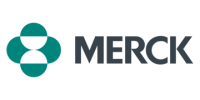
Merck & Co.
AWARDS
NEWS
Pfizer announces the first data from its Metsera-acquired pipeline just ahead of its earnings call, where analysts pressed execs for more details; Merck and Roche also released Q4 and full year earnings, with Eli Lilly, Novo Nordisk and others reporting Wednesday; REGENXBIO hits a regulatory snag ahead of its upcoming PDUFA; more.
In its 2025 full year and fourth-quarter earnings call, Merck executives touted the merits of recent deals and what CEO Robert Davis called “probably the broadest and widest pipeline we’ve had in years.”
In what is shaping up to be a back-loaded month, the FDA is set to release a slew of regulatory decisions in February, including two that would expand the labels of blockbuster drugs.
Bristol Myers Squibb, GSK and Merck are contributing drug ingredients as part of their deals with the White House but are keeping many of the terms of their agreements private.
Investors are apparently taking bets on when Revolution will be acquired. A handful of pharmas could be interested as Merck backs off.
Merck had previously offered anywhere from $28 billion to $32 billion to swallow Revolution Medicines.
JOBS
IN THE PRESS









